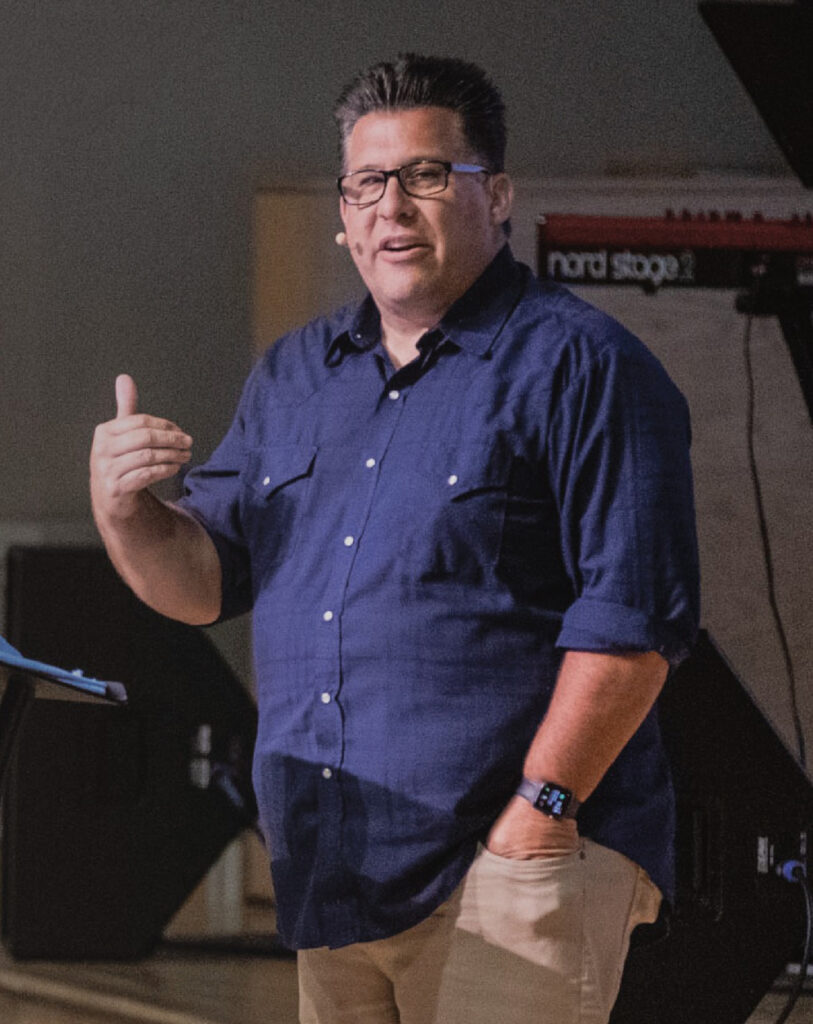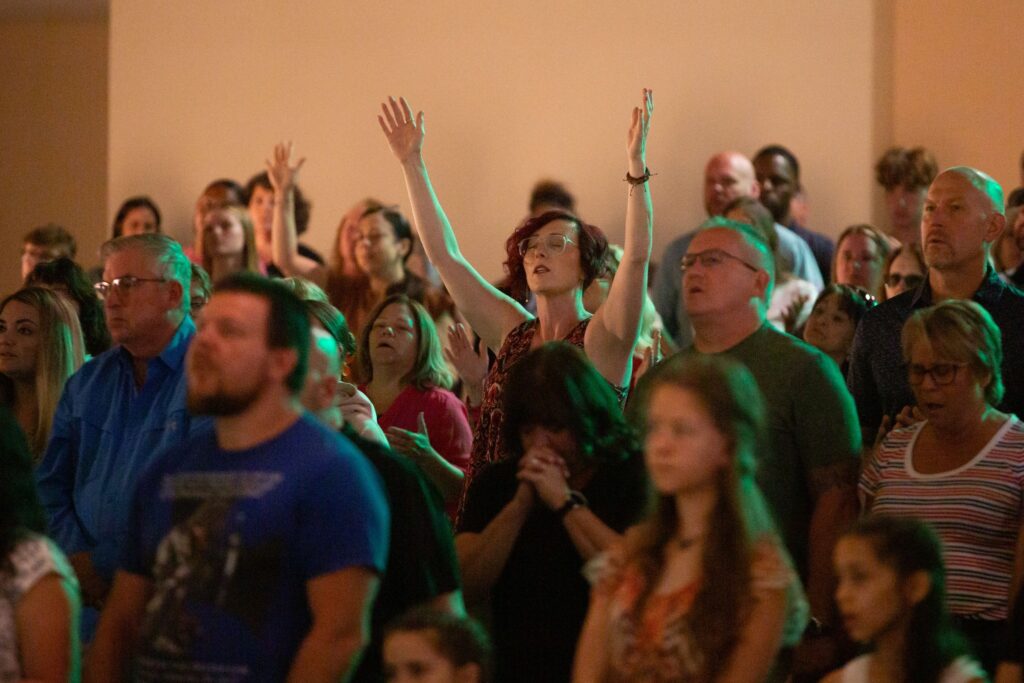
Grace Church, Erie, PA
Case Study
Lead Pastor Derek Sanford
Website: whoisgrace.com
Process: 9-12 month church consulting process
Interviewed 8 months after completing the Clarity House process
What Was Happening at Grace Church?
Grace Church in Erie, PA, was a successful and vibrant church. Like most other megachurches in the U.S., the church was built on the attraction model (also known as the church growth or assimilation model).
They had exquisitely produced, worshipful services with sermon series based on applying the timeless truth of the Bible to today’s world. Grace Church had a separate ministry called Serve Erie that was launched with the exclusive purpose of caring for the practical needs of their community. They even had a leadership development institute that was structured like a small seminary or community college.
Grace had its challenges, just like all megachurches. But by every commonly accepted definition of church success, they checked every box. Attendance was good and growing. Giving was consistent and exceeded budget needs.
So why did Derek Sanford, the lead pastor, feel that something was fundamentally wrong with Grace Church? Derek tells a story to illustrate a defining moment in his ministry life.
“I Feel Guilty When I Come to Church.”
A long-time attender and member of Grace Church owned his own construction company. He had made the personal commitment to run his business based on Christian principles and to use every opportunity to share the hope of Jesus with his employees and customers.
This business leader held regular devotionals with his employees. He cared for his team as if he were a pastor—providing practical support, encouragement, and loving presence when they went through difficult things in their personal lives.
And yet, he told Derek one day that he felt he wasn’t doing enough. He said, “Despite all of the other things I’m doing to live out my faith in Jesus, when I come to church I feel guilty because I’m not leading a small group.” An explosion happened in Derek’s spirit that day.
If this man—who was living out his faith in practical and powerful ways every day—felt guilty because he wasn’t involved with a church program, Grace Church was failing. That solidified it in Derek’s mind—their team needed to rethink their approach.
“I realized that if I were interviewing for a position at a church and they told me, ‘We’re running a 50-year old model,’ I wouldn’t want to be a part of that. But that’s what we were doing. That’s what many churches are doing.” — Pastor Derek
Going Through the Clarity House Process
The team at Grace Church went through the complete Clarity House church consulting process. Once a month, they gathered with Shane and Dave (their Clarity Guides) to work through a series of teachings and exercises designed to guide them to understand and analyze their current church model and dream about what something different could look like.
They were amazed as they worked through the process and began seeing their church and ministry approaches with fresh eyes. They spent time examining the life and methods of Jesus in how He called and trained His disciples. They spent time praying and dreaming together.
Derek says, “One of the biggest takeaways for me from the Clarity House process wasn’t the content itself or even the resulting fundamental shift in the way we approach ministry. It was having a front row seat to how Dave and Shane introduced new ideas, facilitated discussion, guided us through exercises (they call them ‘tools’), and shepherded our team through change. Watching the way they guided a group of people through mind-shifting ideas has changed so much about the way I lead.”
“Watching the way they guided a group of people through mind-shifting ideas has changed so much about the way I lead.” — Pastor Derek
By December of 2023, the Grace Church team was both excited and nervous to begin sharing new ideas of what the church could be—excited because they firmly believed God had led them to this moment and these ideas; nervous because they were stepping into a completely different approach to “doing church.”
Initial Outcomes
In January 2024, Derek began a new sermon series—not unusual for a megachurch in the attractional model. But this time, it was completely different.
Although they had their largest Christmas attendance ever (over 7,000 people across their many services), they never mentioned the January sermon series. They didn’t invite people to come back in January or entice them with a well-produced video teaser.
As a matter of fact, in the month of December, they specifically communicated to their congregation that they should not invite anyone to the January series—this would be an internally focused series about the future of Grace Church. “We told them this series is internal church family stuff,” Derek says.
He preached about a return to discipleship. He talked about rethinking their model of church so that the “finish line,” the measures of success would be moved outside the church walls. Ministries and programs would only be deemed successful if they empowered and released people to live out their unique calling from God 24/7 in their life outside of the church.
“We took the shine out of our services,” Derek says. They no longer run a countdown clock to when the service starts. They no longer attempt to rush people into the auditorium and out of the lobby. “All of those things made it seem like a show—as if the main action is on the stage instead of out there. Now, we’re fine if the conversations and noise from the lobby bleeds into the back of the auditorium. The connections and interactions out there are just as important as what’s happening on the stage.”
“Now, we’re fine if the conversations and noise from the lobby bleeds into the back of the auditorium. The connections and interactions out there are just as important as what’s happening on the stage.” — Pastor Derek
When asked to outline the most important outcomes from the Clarity House process, Derek shared the following items.
→
Moved the finish line of discipleship to outside the church walls, not just about attendance or giving or serving in church-organized ministry programs.
→
A complete culture shift that began with new language to describe what the church is up to.
→
Reworked leadership development from a business/classroom model to an apprenticing/huddle model.
→
Organized the church calendar around the four key attributes of the disciples we’re trying to make, mature, and multiply (their Dream Disciple).
“We’re remodeling our church model,” Derek says. And he means it. They’re rewriting every job description for their staff around environments that build disciples (instead of focusing on attracting attendees).
Testing a New Model for Discipleship
For Grace Church, a significant part of their new model is small, personal huddle environments (as opposed to teaching or classroom environments). They ran a pilot program in the summer of 2024 with some staff and business leaders who have been a part of their church for years.
In the past, Derek would have written a detailed curriculum for each session complete with pre-session work, fill-in-the-blank worksheets for his teaching segment, and a list of questions to focus discussions. All of that takes a lot of time and effort—to both develop the content and get it designed and printed.
This time, they had their list of four attributes of the type of disciples Grace Church wants to create. Each attribute had a brief description, a few short questions, and scripture references with it (not the full passages, just the references).
They opened in prayer and broke into groups of three or four. Participants were instructed to read down the half-sheet and listen for God to speak to them. When one of them had something to share, they would all stop reading and discuss. They encouraged each other, challenged each other, prayed together, and cried together.
When the pilot test for this new discipleship approach reached its intended ending point eight weeks later, none of the participants wanted to stop.
“As someone who has spent years of my life developing detailed worksheets for all kinds of topics and teachings of Jesus, it’s been humbling,” Derek shared. When the pilot test for this new discipleship approach reached its intended ending point eight weeks later, none of the participants wanted to stop.
“Do we have to be done?”
“I’ve never been more productive at work.”
“I’ve been empowered to shine the light of Christ in ways I never knew was possible in my workplace.”

What’s Next?
The Grace Church team is expanding the pilot discipleship huddles to include more people this fall. They’re launching a sermon series to go deeper into one of the key attributes of what a disciple of Jesus looks like in Erie, PA, in 2024.
“It’s going to take a while for these changes to be figured out and implemented across the entire church, so right now we’re in a strange in-between space. It’s both difficult and exciting to be remodeling our church model. And, to be honest, I’m nearing the end of my run as the lead pastor. I didn’t want to be reimagining the way we do church. But I knew something had to change. There’s something about this new approach that’s really resonating in our staff and everyone in the church who experiences it—this is what the church is supposed to be.” — Derek Sanford, Lead Pastor of Grace Church
